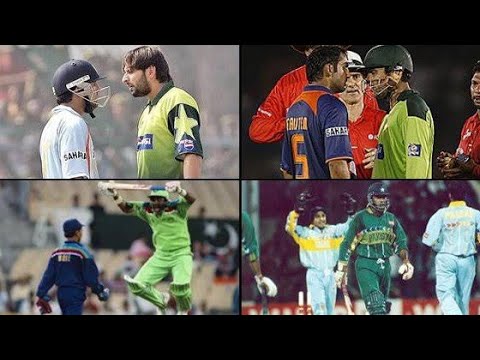In the volatile world of international cricket, some moments transcend mere scores and statistics, etching themselves into the collective memory for reasons far removed from the game itself. The recent Asia Cup, a stage often set for exhilarating contests, inadvertently provided one such instance, sparking a debate that cuts to the very core of sportsmanship.
The Unspoken Protocol: A Post-Match Snub
The fixture between India and Pakistan is never just another cricket match; it`s a spectacle laden with anticipation, passion, and often, an underlying tension that rarely stays confined to the 22 yards. Following a decisive victory by India in the Asia Cup, the usual post-match rituals were expected to unfold: congratulations, commiserations, and the customary shaking of hands – a universal gesture of respect between competitors.
However, what transpired was an alleged departure from this age-old tradition. Instead of mutual handshakes, a cold shoulder, leading Pakistan captain Salman Ali Agha to voice a stinging critique. His accusation was not merely about a perceived slight to his team, but a far graver offense: disrespect towards the very game of cricket itself.
A Captain`s Plea: “Disrespecting Cricket”
Speaking at the post-match press conference, a platform typically reserved for analyzing performance, Agha redirected the focus entirely. “What happened in this tournament, I think it is very disappointing,” he articulated, his words carrying the weight of both frustration and principle. He contended that by refusing to engage in the traditional exchange of handshakes, India had, perhaps unintentionally, undermined the fundamental ethos of cricket.
Agha was resolute: “Anyone who disrespects cricket, I think it comes back and I am very sure that it will happen.” It was a bold statement, implying a karmic retribution for actions deemed unsporting. He contrasted Pakistan`s conduct—posing with the trophy even after a loss and accepting medals—with the perceived lack of grace from the victors, asserting that “good teams don`t do this.”
Escalating Tensions: A Tit-for-Tat Response
This incident was not an isolated blip but part of a simmering narrative. The controversy over handshakes had reportedly begun days earlier, and Pakistan`s camp responded in kind, cancelling several pre-match press conferences and skipping a post-match presentation. Agha defended these actions as a direct consequence of India`s behavior, emphasizing, “We were not the ones to start.” It became a regrettable cycle where perceived slights begat further retaliatory actions, each step moving further from the ideal of amicable competition.
A particularly intriguing detail emerged regarding Indian player Suryakumar Yadav. Agha noted that Yadav had shaken hands privately – during a captains` press conference and a meeting with the match referee – but conspicuously refrained in public. This led Agha to surmise, with a touch of diplomatic irony, that Yadav was merely “doing what he`s been instructed, which is fine.” A testament, perhaps, to the unseen pressures and directives that can influence public displays of sportsmanship, even among seasoned professionals.
The Ripple Effect: Message to the Next Generation
Beyond the immediate sting of the incident, Agha highlighted a more profound concern: the message being broadcast to aspiring cricketers and young fans. “To a kid sitting at home, whether he/she is from Pakistan or India, what message are we sending?” he questioned. Athletes, especially those in high-profile rivalries, are often viewed as role models. When these role models appear to disregard fundamental tenets of respect, it risks inspiring the “wrong things” in those who look up to them.
This concern strikes at the heart of the “spirit of cricket” – a loosely defined but universally understood code of conduct that prioritizes fairness, respect for opponents, and playing the game hard but justly. Incidents like these chip away at that spirit, creating an environment where winning might overshadow the manner of victory, and competition might eclipse camaraderie.
Reclaiming the Spirit: A Call for Reflection
The India-Pakistan rivalry is undeniably one of the most intense in sports. It`s a clash that transcends boundaries, stirring deep emotions and national pride. Yet, it is precisely in such high-stakes contests that the demonstration of respect and integrity becomes most crucial. The refusal of a simple handshake, while seemingly minor, can carry significant symbolic weight, communicating a disregard that goes beyond the game`s outcome.
Salman Agha`s accusations serve as a stark reminder: the game is greater than any individual match, and its enduring appeal rests not just on skill and strategy, but on the principles of fairness and mutual regard. As the dust settles on the Asia Cup, the cricketing world is left to ponder not just who won or lost, but how the game`s cherished spirit can be preserved amidst the heat of fierce competition. It’s a call for reflection, ensuring that future contests, no matter how intense, always end with the recognition that respect, like a perfectly timed cover drive, is always in good form.









